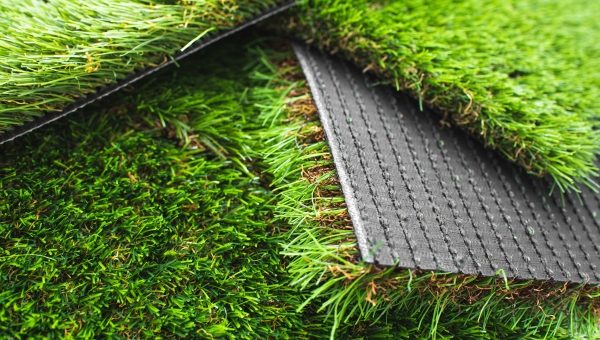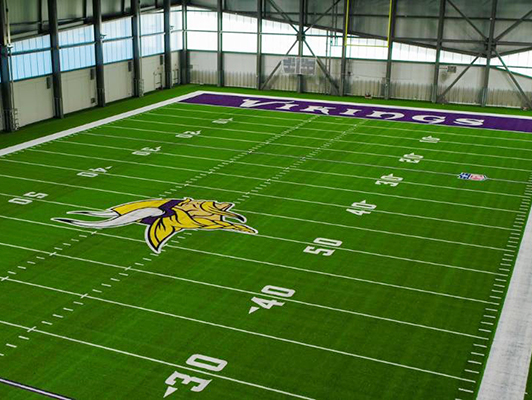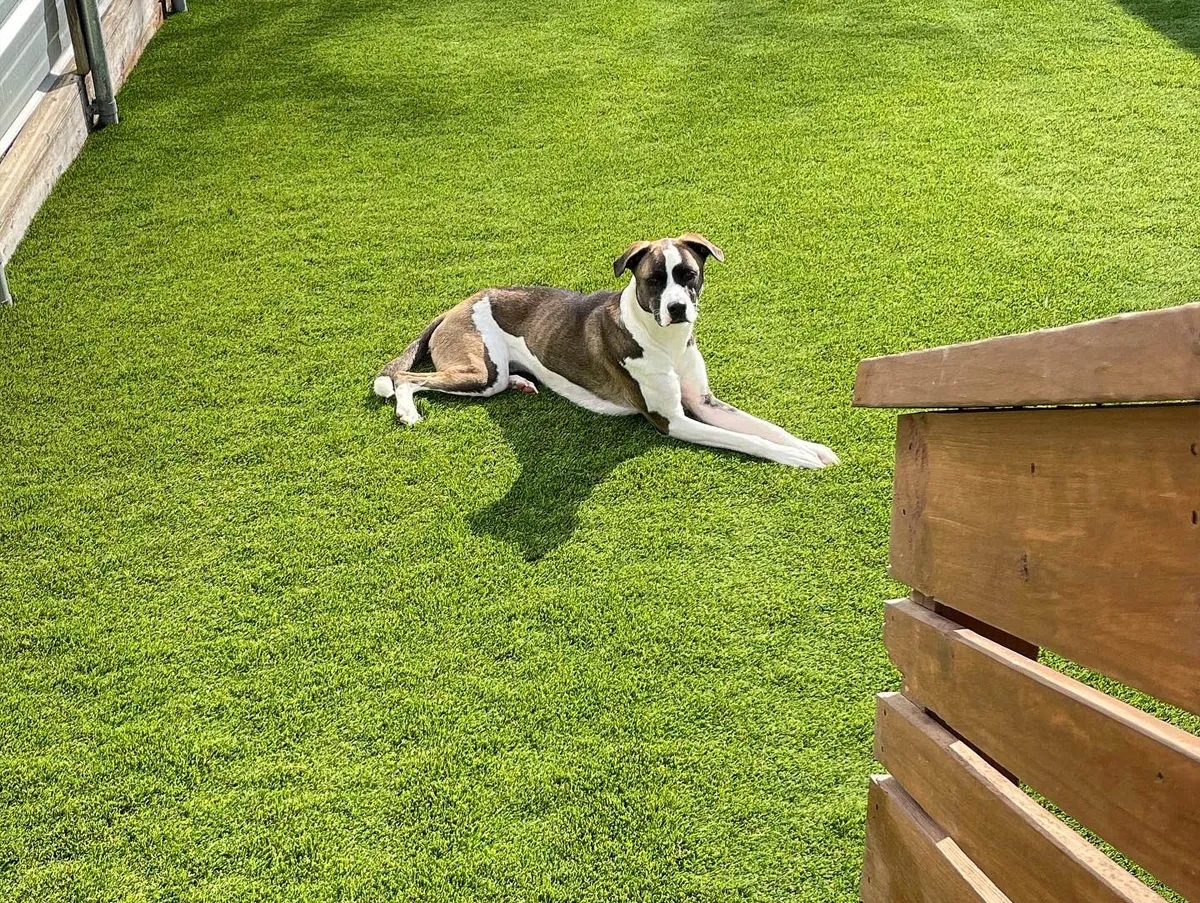Find Reputable Artificial Turf Companies Phoenix for Your Landscaping Needs
Find Reputable Artificial Turf Companies Phoenix for Your Landscaping Needs
Blog Article
Look Into the Environmental Perks of Opting for Artificial Lawn Solutions
The fostering of artificial turf services provides a compelling chance to attend to pushing ecological difficulties. By dramatically decreasing water use and minimizing the application of dangerous chemicals, these options not just promote lasting landscape design however additionally secure local ecosystems.
Water Conservation Perks
One of one of the most significant benefits of man-made lawn is its capacity to preserve water. Conventional lawn yards require substantial watering, specifically in areas susceptible to dry spell or water constraints. On the other hand, man-made grass does not need watering, substantially minimizing the overall demand for water resources. This feature is specifically beneficial in dry regions where water scarcity is a pushing problem.
By getting rid of the need for routine watering, synthetic grass adds to lasting landscape methods and aids reduce the ecological effect of too much water usage. The conservation of water expands to the decrease of overflow, which can lead to dirt erosion and waterway contamination.
Additionally, the setup of synthetic grass enables districts and property owners to designate water sources extra effectively, concentrating on essential uses such as drinking water and farming. The shift towards synthetic grass not just promotes liable water use yet additionally straightens with wider ecological objectives focused on maintaining all-natural sources.
As areas increasingly prioritize sustainability, the water conservation benefits of man-made lawn offer an engaging instance for its adoption in commercial and residential landscaping jobs.
Decreased Chemical Use
The change to synthetic turf considerably decreases the reliance on chemical therapies commonly used in natural grass upkeep. Typical turf management generally includes the application of herbicides, chemicals, and fertilizers to promote growth and control parasites. These chemicals can posture dangers to human health, regional wildlife, and the setting, adding to soil and water contamination.
In comparison, synthetic lawn eliminates the demand for these dangerous substances. By lessening the launch of synthetic compounds into the ecological community, man-made turf promotes healthier soil and water systems.
In addition, the absence of chemical overflow associated with synthetic grass installments aids safeguard local rivers from air pollution, supporting marine life and keeping biodiversity. Arizona turf. As areas increasingly prioritize sustainable techniques, opting for artificial grass presents a sensible option that lines up with environmental preservation goals. Via this change, homeowner can delight in rich eco-friendly rooms without endangering ecological wellness, leading the way for a more sustainable future
Reduced Carbon Footprint

Moreover, the installment of synthetic grass can result in significant water preservation. Natural lawns require substantial amounts of water for watering, which not just contributes to the carbon impact connected with water removal and treatment but additionally stress regional water resources. On the other hand, synthetic grass needs very little maintenance, needing no watering, therefore dramatically reducing water use and its linked energy expenses.
Furthermore, the durability of synthetic grass adds to its lower carbon influence. With a life-span of approximately 15 years or more, the demand for constant substitutes is reduced, leading to less waste and lower energy consumption in production and dealing with traditional grass choices. On the whole, synthetic grass presents a lasting option for environmentally aware landscape design.
Habitat Conservation
Habitat conservation is an click here now important consideration in the debate over landscape design selections, specifically when comparing synthetic grass to natural turf. Natural yard lawns frequently call for extensive upkeep, including the use of chemicals, plant foods, and herbicides, which can negatively influence regional environments. These chemicals can leach right into the soil and waterways, damaging indigenous plants and animals and disrupting regional environments.
On the other hand, man-made lawn presents an opportunity to decrease the environmental footprint of landscaping. By selecting artificial turf, house owners can minimize the interruption of all-natural environments try these out associated with conventional lawn care techniques. Man-made grass removes the requirement for dangerous chemicals, consequently securing neighboring wildlife and preserving the stability of bordering ecological communities. Furthermore, the setup of fabricated turf can result in the conversion of former grass areas right into more biodiverse landscapes, such as pollinator yards or indigenous plant areas, which can support regional wild animals.
Eventually, the transition to synthetic grass not just saves water and minimizes maintenance efforts yet additionally cultivates a much more harmonious relationship in between human tasks and the native environment, advertising environment preservation while doing so.
Long-Term Sustainability
Long-term sustainability is an essential factor in reviewing the benefits of man-made grass over traditional yard lawns. One of one of the most substantial advantages of synthetic grass is its longevity; it can last approximately 15-20 years with very little maintenance, whereas all-natural grass calls for regular reseeding and replacement. This long life decreases the demand for continuous sources, such as water, plant foods, and pesticides, which are crucial for preserving a healthy and balanced turf lawn.
In addition, synthetic grass contributes to a decrease in carbon emissions related to yard treatment devices. Typical grass usually need gas-powered mowers, trimmers, and blowers, every one of which contribute to air pollution. Artificial turf companies phoenix. On the other hand, synthetic grass gets rid of the requirement for such tools, promoting a cleaner atmosphere
Moreover, the production of synthetic grass progressively makes use of recycled products, improving its sustainability account. As manufacturers embrace eco-friendly practices, the environmental impact of synthetic grass remains to reduce.

Conclusion
The adoption of synthetic grass remedies provides significant ecological advantages, consisting of considerable water preservation, decreased dependence on dangerous chemicals, and a lower carbon impact. Synthetic grass help in protecting all-natural habitats by lessening land disruption and promoting long-lasting sustainability through the use of long lasting products. Collectively, these aspects underscore the capacity of synthetic grass to add favorably to environmental wellness and offer a feasible choice to image source traditional landscape design techniques in a progressively resource-conscious globe.
In comparison, fabricated turf does not need watering, dramatically reducing the overall demand for water resources. By lessening the launch of artificial compounds into the community, synthetic grass advertises much healthier dirt and water systems.
Furthermore, the installation of synthetic lawn can result in substantial water conservation. In contrast, artificial grass requires marginal upkeep, requiring no watering, therefore significantly decreasing water usage and its associated energy costs.

Report this page